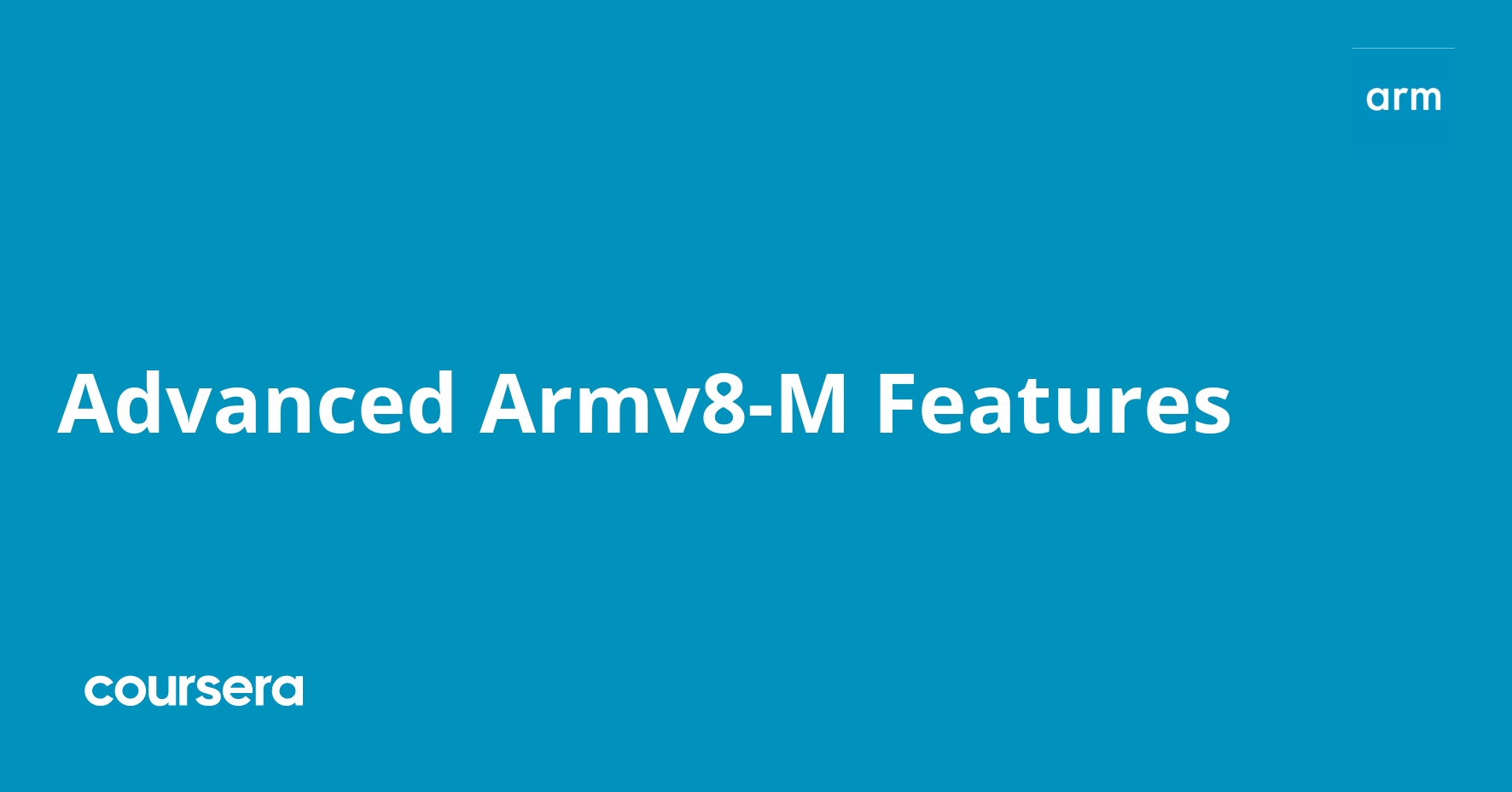Description
The final course covers more advanced and optional features that might be configured in a Cortex-M system. These features could help with particular project requirements such as security and performance. Not all of these topics might be relevant for any given Cortex-M project, so feel free to pick and choose which topics, if any, apply to you.
What you will learn
Course Introduction
The final course covers more advanced and optional features that might be configured in a Cortex-M system. These features could help with particular project requirements such as security and performance. Not all of these topics might be relevant for any given Cortex-M project, so feel free to pick and choose which topics, if any, apply to you.
Synchronization
This module describes the mechanism in the Armv8-M architecture to to share resources like peripherals between different threads and processors in an M-profile system.
Cache Management
This module is aimed to be a top-level module on caches for M-profile systems that covers fundamental cache terminology all the way through to configuring and utilising the cache for improved performance in M-profile systems involving more complex implementations like Cortex-M7 and Cortex-M55.
DSP Extension
The DSP Extension is an optional feature for Armv8-M Mainline implementations that allows allows DSP operations to be executed by a dedicated instructions.
Floating-point Extension
The Floating-point Extension is an optional feature for Armv8-M Mainline implementations that allows allows floating-point operations to be executed by a dedicated floating-point unit (FPU) hardware.




